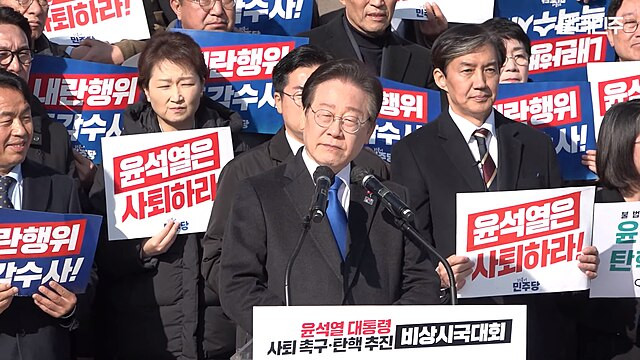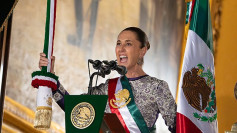Liberal politician Lee Jae-myung is projected to become South Korea's next president, following months of political turmoil triggered by former President Yoon Suk Yeol's abrupt imposition of martial law and subsequent impeachment. A joint exit poll from major broadcasters KBS, MBC, and SBS showed Lee securing 51.7% of the vote, ahead of conservative rival Kim Moon-soo, who garnered 39.3%.
Lee's likely victory comes six months after Yoon's declaration of martial law on December 3, which was followed by a legislative impeachment on December 14 and upheld in April by South Korea's Constitutional Court. The political vacuum has left the key U.S. ally without stable leadership amid tense trade negotiations with the Trump administration and mounting domestic frustrations.
Lee said that if his victory was confirmed by South Korea's National Election Commission, he said he would "do my utmost to fulfill the great responsibility and mission entrusted to me without falling short of expectations."
Nearly 80% of South Korea's 44.4 million eligible voters turned out for the snap election, held nationwide Tuesday. The high turnout reflects deep public anger toward Yoon's conservative People Power Party, whose candidate Kim Moon-soo failed to shake off associations with the deposed president despite his criticism of martial law.
"His victory is not thanks to any particular policy proposals, but rather a result of Yoon's spectacular collapse," said Leif-Eric Easley, a professor of international studies at Ewha Womans University.
Kim, who served as labor minister under Yoon, warned during his campaign that Lee's win would usher in "a Hitler-like dictatorship" and allow him to evade legal scrutiny. Lee is currently involved in multiple criminal trials but has denied wrongdoing.
Lee said his administration's first priorities would be tackling South Korea's sluggish economy and addressing the looming threat of U.S. tariff hikes. "If the president of the Republic of Korea's kowtowing briefly would allow 52 million people to thrive, then he must do so," he told South Korea's Christian Broadcasting System on Monday, adding, "I'm not an easy opponent either."
His comments come as President Donald Trump has moved to impose a 25% reciprocal tariff on South Korean imports, with additional levies on steel and aluminum expected to rise to 50% starting June 4. South Korea's central bank recently downgraded the country's 2025 growth outlook to 0.8%, citing these trade tensions.
White House press secretary Karoline Leavitt stated Monday that the administration is "aggressively moving to onshore critical supply chains" and "monitoring South Korea's response." Lee said he supports continued U.S.-South Korea-Japan cooperation and would work toward a "mutually beneficial" trade deal with Trump.
On North Korea, Lee struck a cautious tone. "It's very difficult" to expect a summit with Kim Jong Un, he said, but voiced support for Trump's efforts to resume diplomacy with Pyongyang. Relations with the North have been largely frozen since 2019, and Lee has indicated that his government would back potential economic projects if U.S.-North Korea dialogue resumes.
Lee is set to be sworn in Wednesday with no transition period, beginning a full five-year term amid lingering domestic polarization. Yoon, meanwhile, is standing trial for insurrection, a charge that carries a potential death sentence.






